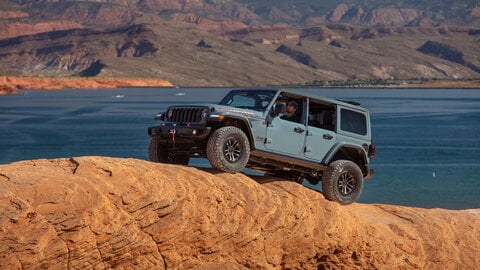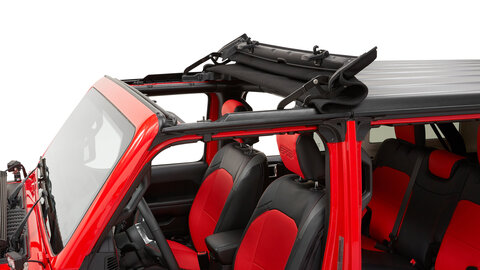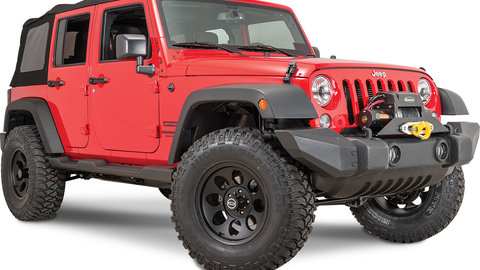FCA's latest wave to potential buyers may be something you'll want to return.
Yeah, you may think this is another one of those endless Jeep wave stories. Something about how almost no one uses the wave these days because, the narrative goes, mall-crawling JK (and now JL) owners do not know any better and killed the thing. So now Jeep parent Fiat Chrysler has to step in and make changes.
Well, while that would be interesting, that’s not exactly the Jeep wave we’re dealing with here. This one is a subscription and borrowing service, which would essentially give drivers access to a variety of different FCA vehicles while also covering insurance – all for a set monthly fee.
Your neighbors giving you Wrangler envy with that shiny new Rubicon sitting in their driveway? Well, now you’d be able to drive one for a few months and see if you like the vehicle. Been thinking about upgrading to a Grand Cherokee, or checking out the redesigned Compass? You can – all without locking yourself into a longer term lease or purchase. Perhaps you just need something larger for the day to haul stuff, such as a Dodge Ram 3500.
FCA announced the Jeep Wave program during an investors event late last week, where the main focus was on the automaker’s latest five-year sales plan.
While official details, such as subscription cost and access times were not released by the company, Jeep brand head Mike Manley did say during this meeting that the program would give Jeep fans wider access to the brand's vehicle portfolio. For a monthly fee, members will have access to a variety of FCA vehicles and the program will be offered in tiers described as "good, better, best," with varied options for insurance coverage, vehicle selection and concierge services.
This will not be something unique to Jeep as other manufacturers already either have subscription plans in place, or are testing the idea which many analysts say will play a huge role in the industry’s future.
For example, Cadillac’s $1,800-a-month book service provides access to a wide range of models, including the top-selling XT5 crossover and the performance-oriented ATS-V. It allows up to 18 vehicle changes per year and covers insurance and maintenance costs.
Volvo’s Care program, which also covers insurance and maintenance, opens at $600 a month, but limits drivers to only two models and allows changes after 12 months. BMW, Porsche, and Mercedes-Benz are testing subscription programs as well where staff members drive the new car out to respective drivers, and then take away the old model.
”There are so many automakers that are dipping their toe in this,” said Ivan Drury, senior manager of industry analysis at Edmunds.com. “This is the next forefront into where automakers are going to make money.”
Another aspect of the Jeep Wave plan will be the ability to ‘borrow’ cars or trucks based on current Jeep ownership. Jeep Wrangler owners and ‘Hawks’ – which includes the Trail Hawk, Desert Hawk, and Track Hawk variants – will get so-called ‘Jeep coins’ when they buy. These coins can be used to borrow other vehicles when required, with drivers able to purchase more coins as needed for ongoing access to the service.
The goal of this plan would be to encourage buyers to opt for the pricier (read profitable), but slightly less practical, models by ensuring they could borrow more mainstream vehicles if needed. It also could help Fiat Chrysler make a little more money by selling additional coins.
“There’s still a lot of variables in terms of what this program is going to be. However, looking at alternative ownership models is something the industry is doing as a whole and certainly FCA needs to be part of that conversation,” said Stephanie Brinley, a senior industry analyst with IHS Markit.
“There’s a potential for people to start consuming transportation in a very different way. If that sort of reality is going to take hold, all of these programs are part of getting there.”
FCA expects the borrowing program to initially begin in the northeast as a pilot in 2019, while Jeep Wave subscriptions will also launch in 2019.





















